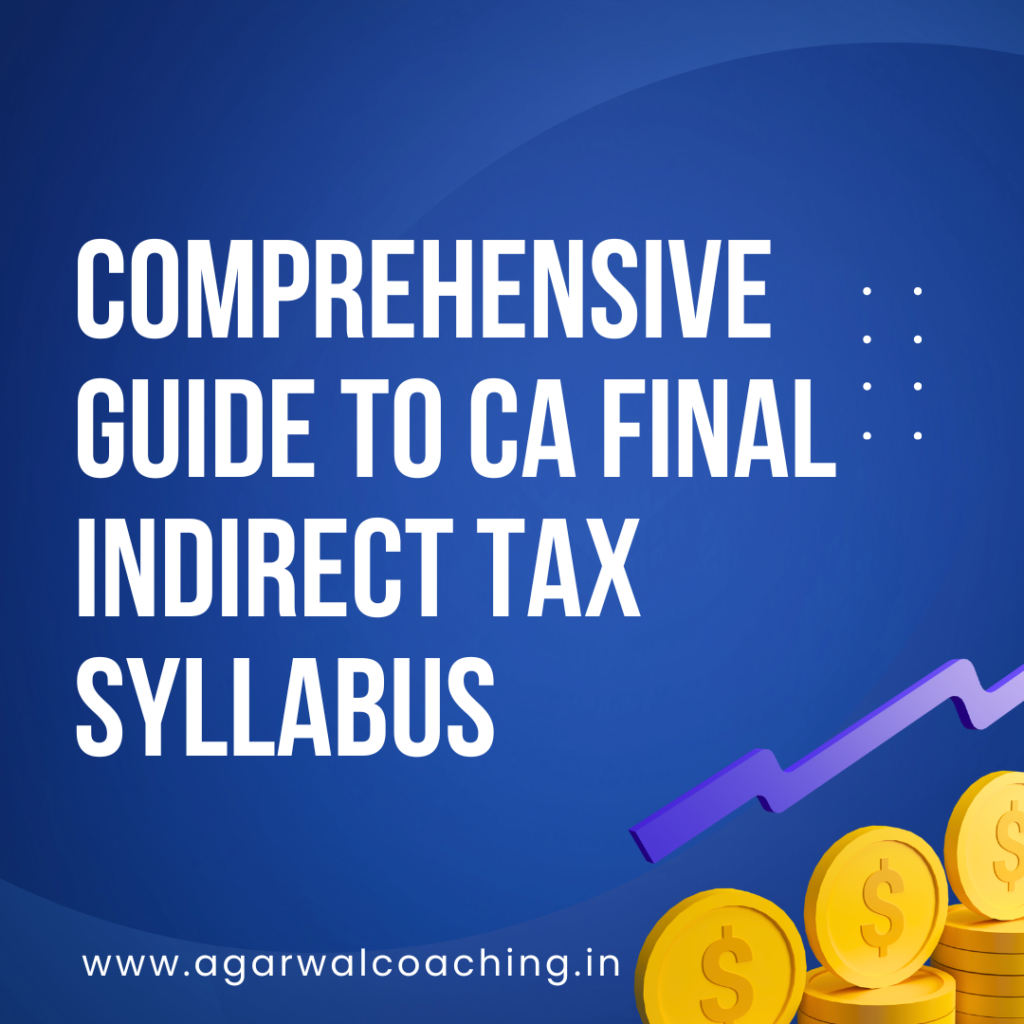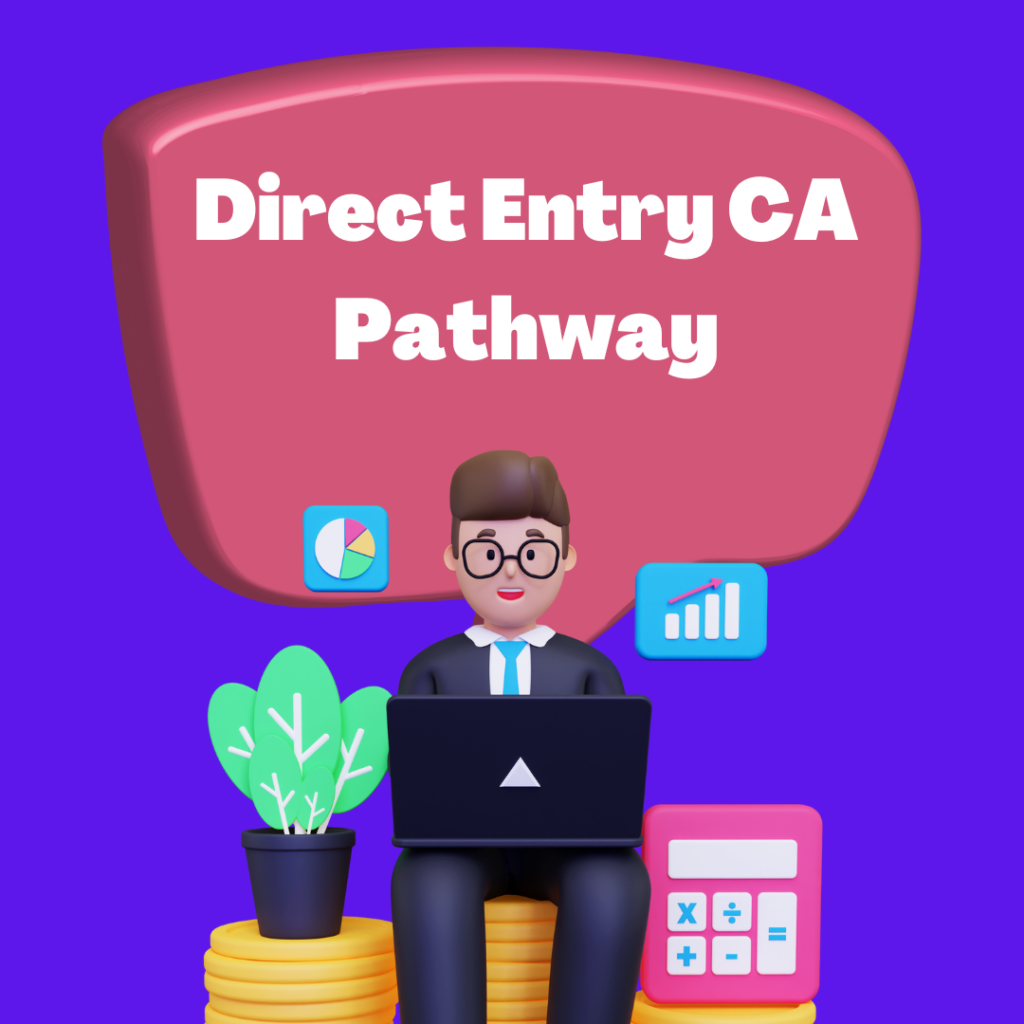Introduction
The Chartered Accountancy (CA) Final examination is the ultimate challenge for aspiring Chartered Accountants, testing their expertise in various subjects. One crucial area that candidates must master is the Indirect Taxation syllabus. In this blog, we will delve into the CA Final Indirect Tax syllabus, exploring its key components, significance, and tips for effective exam preparation.

1. Understanding the CA Final Indirect Tax Syllabus
The Indirect Taxation syllabus in the CA Final exam aims to assess candidates’ knowledge and understanding of indirect taxes levied in India. Indirect taxes are taxes levied on the manufacture, sale, or consumption of goods and services, and the syllabus covers various aspects of these taxes.
2. Key Components of the CA Final Indirect Tax Syllabus
The Indirect Tax syllabus in the CA Final exam includes the following key components:
a. Goods and Services Tax (GST): Understanding the GST regime, including its structure, tax rates, registration, and compliance requirements.
b. Customs Law: Comprehending the provisions of customs laws, including import duties, export duties, and customs valuation.
c. Central Excise Law: Understanding the concepts of central excise duty, exemptions, and procedural aspects related to excise duty.
d. Service Tax: Computation and applicability of service tax on various services provided.
e. Value Added Tax (VAT): Concepts of VAT, its implementation, calculation, and compliance.
f. Central Sales Tax (CST): Provisions related to the taxation of interstate sales of goods.
g. Tax Planning and Avoidance: Strategies for tax planning and avoiding tax evasion.
3. Significance of the Indirect Tax Syllabus
The Indirect Tax syllabus holds immense significance for CA Final candidates, as it tests their ability to navigate the complex and dynamic world of indirect taxes. Successful mastery of this syllabus equips aspiring Chartered Accountants to provide valuable tax advisory and compliance services to businesses and individuals, making them proficient tax professionals.
4. Tips for Effective Preparation
To excel in the Indirect Tax syllabus of the CA Final exam, candidates can follow these tips:
a. Familiarize with Tax Laws: Thoroughly study the provisions of GST, customs, excise, and other indirect tax laws.
b. Understand Tax Structure: Comprehend the tax structure, including tax rates, exemptions, and compliance requirements.
c. Practice Past Papers: Solve past papers and mock tests to get familiar with the exam pattern and gain confidence in answering questions.
d. Stay Updated: Keep abreast of the latest amendments and changes in indirect tax laws to stay accurate and relevant.
e. Seek Expert Guidance: Join a reputable CA coaching institute or seek guidance from experienced mentors to clarify doubts and gain valuable insights.
Conclusion
The CA Final Indirect Tax syllabus plays a crucial role in shaping aspiring Chartered Accountants into competent tax professionals. By mastering the concepts and staying updated with amendments, candidates can confidently tackle the Indirect Taxation section of the CA Final exam. A comprehensive understanding of this syllabus will not only lead to success in the exam but also empower candidates to provide invaluable tax advice and compliance services to clients, contributing significantly to the financial landscape. As you embark on your journey to becoming a qualified Chartered Accountant, remember to stay dedicated, practice diligently, and seek expert guidance. By embracing the challenges and preparing strategically, you will be well-prepared to navigate the indirect tax landscape and excel in the CA Final exam. Best of luck in your pursuit of becoming a Chartered Accountant!









